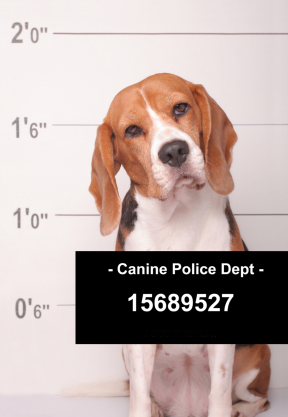 As a society, we love our pets. In many cases, cats and dogs are our surrogate children. We spoil them with treats, toys and plenty of attention. They reward us with unconditional love (or as some cats seem to think, simply with their presence). However, in addition to the many joys of animal companionship, there are unpleasant effects and responsibilities associated with pet ownership. Cat or dog hair covers our furniture, our favorite sweater and every other possession, whether or not these items come into direct contact with our hairy friend. Some dogs have uncontrollable urges to chase cars or bark incessantly; cats often dispense fur balls randomly around the house or become a pest every time we use the can opener. One of the worst responsibilities, in my opinion, is cleaning up after them. Cats have litter boxes, which must be cleaned periodically, and dogs generate piles of yesterday’s dog food, which must be picked up. A responsible dog owner even carries plastic bags during walks to collect piles that Fido leaves along the way. However, not all pet owners are responsible enough to pick up the offending material, and this is causing problems in many communities. Some property owners are now implementing a high-tech solution to this unsightly problem: DNA testing.
As a society, we love our pets. In many cases, cats and dogs are our surrogate children. We spoil them with treats, toys and plenty of attention. They reward us with unconditional love (or as some cats seem to think, simply with their presence). However, in addition to the many joys of animal companionship, there are unpleasant effects and responsibilities associated with pet ownership. Cat or dog hair covers our furniture, our favorite sweater and every other possession, whether or not these items come into direct contact with our hairy friend. Some dogs have uncontrollable urges to chase cars or bark incessantly; cats often dispense fur balls randomly around the house or become a pest every time we use the can opener. One of the worst responsibilities, in my opinion, is cleaning up after them. Cats have litter boxes, which must be cleaned periodically, and dogs generate piles of yesterday’s dog food, which must be picked up. A responsible dog owner even carries plastic bags during walks to collect piles that Fido leaves along the way. However, not all pet owners are responsible enough to pick up the offending material, and this is causing problems in many communities. Some property owners are now implementing a high-tech solution to this unsightly problem: DNA testing.
In the past, people who failed to pick up after their dog remained anonymous unless they were caught in the act. However, with today’s DNA technology, property owners can easily identify the source of the dog poo. Property management companies around the country are realizing this and enrolling in commercial programs that perform doggy DNA testing. These property managers require dog-owning tenants to submit a buccal swab from each dog and pay a fee that goes toward generating a DNA profile and adding it to a DNA database. If someone fails to pick up after their dog, the groundskeeper simply collects a fecal sample and submits it to the DNA-typing company, which generates a DNA profile, searches their DNA database and notifies property managers if the sample matches one of the dogs in the database. The dog owner then can be fined for failing to pick up after the pet.
Of course, these types of programs only work if the offending dog owner has submitted a DNA sample and his or her dog is in the DNA database. This begs the question: Do these programs act as a deterrent?
Property managers who have implemented doggy DNA testing report that more dog owners are picking up after their dogs and that the incidence of unwanted dog droppings has declined dramatically. Second offenses are very rare. This makes everyone, including dog-owning residents and nonowners alike, happy because there is less dog poop littering the sidewalks and lawns.
Some readers might think that using DNA analysis is a bit over the top for such a seemingly harmless nuisance and that property owner are taking extreme measures for a minor problem. Some might argue that if we have the ability to identify dog owners who do not pick up after their dogs, why shouldn’t we? Everyone benefits from being exposed to less dog waste, right?
What do you think?

“Property management companies around the country are realizing this and enrolling in commercial programs that perform doggy DNA testing”–Smart move my property management. Great Post !
It’s fascinating to see how technology is being utilized to tackle a seemingly minor but pervasive problem like dog waste. The idea of DNA testing to identify the source of dog poop is both innovative and practical. The fact that property managers are enrolling in commercial programs that perform doggy DNA testing to hold dog owners accountable for cleaning up after their pets is a testament to how serious this issue has become. It’s heartening to know that these programs are proving to be effective in encouraging more dog owners to be responsible and pick up after their pets. In a world where we are constantly facing environmental challenges, it’s essential that we take individual responsibility to ensure the cleanliness and safety of our communities. Doggy DNA testing seems to be a small but significant step towards achieving this goal.